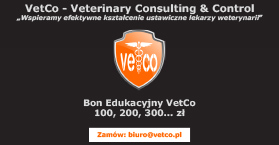I attended the North American Veterinary Conference (NAVC) in Orland Florida this week, where I presented a number of lectures on a variety of endocrine topics (complete list of topics on my website).
One lecture that I had agreed to present 9 months ago was part of a Hill's seminar on diagnosis and treatment of feline hyperthyroidism. The topic that I had agreed to present (which I did present last Monday morning on January 16th), was entitled "Feline Hyperthyroidism: Risk Factors and Diagnosis." This was arranged before Hill's iodine deficient y/d diet had been released, so the intense marketing campaign that we have seen over the last 3 months had not yet begun.
The day before I traveled to the NAVC conference, I received an email from Hill's with the above ad, promoting the hyperthyroid seminar that I would soon be a part of — to be honest, I was shocked and rather embarrassed that I was to be a part of this y/d promotion.
Once I arrived in Orlando, the slogan, Believe The Hype was posted as a prominent banner almost everywhere that one looked. Again, I was feeling more and more uncomfortable that I was to be included as part of this "hype,"especially since I'm not convinced that this diet is even safe to use, based on the evidence. (To see my past posts which discuss the y/d diet, click here.)
Remember that we have yet to see any referred scientific publications with the complete data that answer all of our questions. The Hill's research team certainly hasn't responded to most of my questions that I've brought up about y/d in my blogs.
Defining the Term, Hype
After thinking about "Believe The Hype" banner and discussing the matter over dinner with friends, someone asked the obvious question —What does the word hype really mean, anyway?
Well, according to the Merriam-Webster Dictionary, the word, when used as a noun as it is in the slogan, has two possible meanings:
- deception, put-on
- publicity; especially: promotional publicity of an extravagant or contrived kind
And according to an online dictionary (dictionary.com), the word hype has three meanings, all similar to those found in the Merriam-Webster source:
- exaggerated publicity; hoopla
- an ingenious or questionable claim, method, etc., used in advertising, promotion, or publicity to intensify the effect
- a swindle, deception, or trick
So What Is Hill's Implying with the Believe The Hype Slogan?
At face value, is the marketing division at Hill's actually asking us to believe that the information they have provided about the y/d diet is all hype? Remember that the word is defined as exaggerated, ingenious or questionable claims, put-ons, or tricks!
Interesting thought, isn't it.
Personally, I find the slogan to be "over-hyped" — unnecessarily exaggerated to the point of overkill. Why don't they present the hard evidence, answer the real questions that we all have, and forget this foolishness?
My Bottom Line
We all need to remember that this marketing campaign for the Hill's y/d diet, as well as the marketing ads for the multitudes of products that we get bombarded with every day, is all about hype.
As veterinarians and advocates for our feline patients, our job is to dig below this exaggerated hype and find the real science (if any) behind this sensational publicity. In the case of y/d, Hill's has created much more hype than usual or really necessary (at least in my opinion). If half of this money spent on this marketing campaign would be directed toward research on feline hyperthyroidism, we may be able to find the cure for this disease!
I know that it is tempting to get taken in with all marketing of new products, especially y/d. My goal in writing these blog posts, the way I see it, is to try to bring everyone back to earth and make the practicing veterinarian think about the possible long-term implications of feeding y/d to cats. That's what I have tried to do over the past few weeks and will continue to do as needed in the future.
Hill's y/d diet is different than all of the other commercial pet foods on the market because they are promoting y/d as a treatment for a disease — in other words, Hill's is marketing y/d more like a drug than a diet per se. In that regard, I believe that they need to do the studies to ensure that this diet is safe, as well as effective, just as any pharmaceutical company would have to do for FDA approval. From what I've heard, however, no further safety studies are planned simply because they are not required to do them.
But is that the "right" thing to do, just because the diet isn't regulated as a drug by the FDA? Or is it all about selling as much cat food as possible to keep the shareholders happy?
Źródło: endocrinevet.blogspot.com










